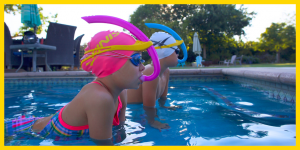SwimSwam Staff, SwimSwam
October 17, 2019
An informal case study of 98 swimmers from 4 NCAA swimming & diving programs has revealed a certain level of anxiety among survey respondents in pre-race preparations. The survey was done by SwimSwam contributor Olivier Poirier-Leroy as part of his Your Swim Book program.
98 swimmers from 4 NCAA swimming & diving programs were asked to fill out an anonymous survey. While the programs aren’t named in the results, Poirier-Leroy did share that they were two Division II universities and two Division I ‘Power 5’ schools.
Among the results of the survey:
- Swimmers who report feeling scared “most” to “all of the time” when racing at big meets – 42%
- Swimmers who have trouble managing their emotions when under pressure – 56%
- Swimmers who think they spend too much time worrying about what might go wrong in competition – 76%
- Swimmers who have specific goals for the season – 67%
- Swimmers who know what they have to do to achieve their goals – 52%
- Swimmers who have a clear idea of what they need to do on a daily basis to succeed – 29%
- Swimmers who regularly visualize themselves being successful – 62%
- Swimmers who regularly use self-talk to conquer hard workouts – 56%
- Swimmers who believe that they elevate their performance when a competitor goes fast – 58%
- Swimmers who feel unconfident when comparing themselves to other swimmers – 67%
While the sampling methods from the study limit the ability to paint the results as overarching, some of the anxiety statistics align with broader studies about teens and young adults in the United States. According to the National Institutes of Health, nearly one-third of all adolescents in the U.S. have had an anxiety disorder, and that the rates are increasing. The average age of survey respondents was just under 20 years old.
Poirier-Leroy believes that by placing a greater emphasis on a “process-based mindset” and “framing anxiety as excitement,” athletes can better deal with pre-race emotions for better performances.
Read more about Poirier-Leroy’s analysis of the survey responses in his full post here.
Read the original article here
Recent Articles
Dylan Carter
Chelsea Hodges
Lorenzo Zazzeri

Introducing the Stability Snorkel Jr
Share on Social Media


